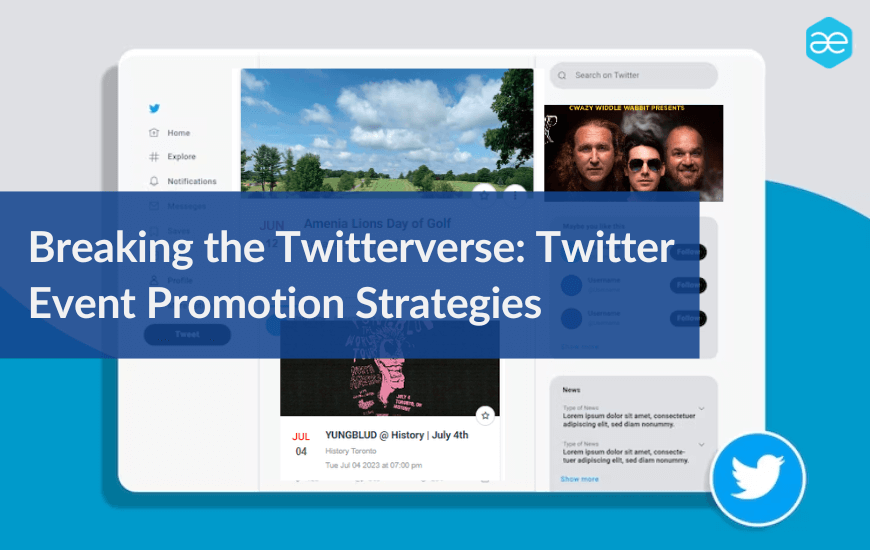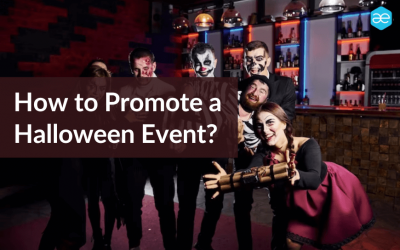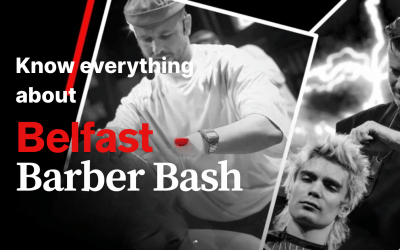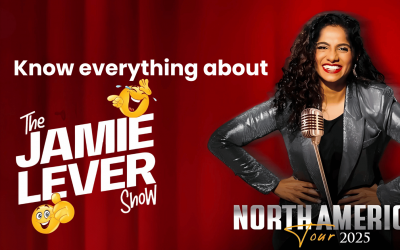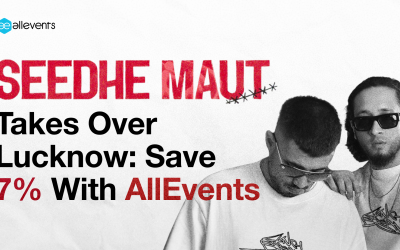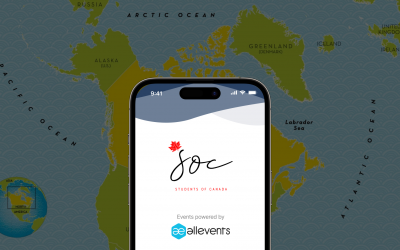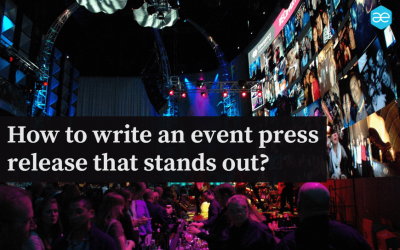Picture this: It’s a crisp Tuesday morning in San Francisco. The team at TechCon 2023, a major technology conference, is working tirelessly to ensure a successful event. Traditional promotional methods need to yield results.
Within days of a dedicated Twitter Event promotion strategy, TechCon 2023 saw a 30% increase in ticket sales. This is more than just a global solitary; event organisers are leveraging Twitter to promote their events.
Twitter, a micro-blogging platform with over 330 million active users, is a fertile ground for event promotion. It offers real-time communication, making it a powerful tool in an event marketing guide. This article is your guide to navigating the world of Twitter and unlocking its potential for your event promotion.
1. Define Your Target Audience

To successfully promote an event on Twitter, you must first understand your audience.
- Demographics: What is their age, occupation, gender, income, and geographical location?
- Interests: What are they passionate about? What topics or issues resonate with them?
- Digital behaviour: When are they most active on Twitter? What kind of content do they engage with?
For instance, a vegan food festival in Seattle would aim to attract health-conscious individuals within the city, primarily aged 20-35, who engage with sustainable and plant-based lifestyle content online.
Twitter provides an analytics dashboard that offers a wealth of information about your followers, from their interests to engagement times. For example, according to Sprout Social, the best time to post on Twitter for consumer goods is on Saturdays at 1 p.m.
Also, don’t shy away from studying your competitors’ followers. They are a goldmine of information and can provide insights about people interested in similar events, helping you fine-tune your audience for your upcoming event.
2. Set SMART Goals
Once you’ve identified your target audience, it’s time to set your goals for promoting your event on Twitter. These should be SMART: Specific, Measurable, Achievable, Relevant, and Time-bound.
- Specific: Your goal should be clear-cut. For example, “Increase ticket sales” is vague, but “Sell 500 tickets by the end of this week” is specific.
- Measurable: You should be able to track your goal. Twitter’s analytics tools can help you monitor engagement rate, retweets, likes, and more metrics.
- Achievable: Make sure your goal is realistic. Setting unachievable goals can demotivate your team.
- Relevant: The goal should align with your event’s overall objectives.
- Time-bound: Set a deadline for your goal. This creates urgency and helps keep your team on track.
3. Optimize Your Twitter Profile

A well-optimized Twitter profile can significantly increase your event’s visibility and credibility. Here’s how:
- Username and Profile Picture: Choose a username and profile picture that reflects your event’s brand. Remember, your profile picture is what your audience sees in their feed, so it must be eye-catching and recognizable.
- Bio: People first read your bio when they visit your profile. Make it engaging, informative, and include relevant keywords. For instance, if you’re organizing a literary festival, your bio could be, “Celebrating the power of words at the Annual City Lit Fest. Join us for a week of inspiring talks, workshops, and book signings.”
- Links: Add links to your event’s website and other social media platforms. This drives traffic and provides additional channels for your audience to engage with your event.
- Pinned Tweet: Pin a tweet about your event at the top of your profile. It could be a promotional video, event details, or a ticket booking link.
According to a Brandwatch report, tweets with links receive 86% more retweets. So, pinning a tweet with a link to your event’s registration page could significantly boost your reach.
4. Create a Hashtag for Your Event

Hashtags are a powerful way to create buzz around your event. They can:
- Boost Discoverability: Twitter users often follow hashtags of their interest. A unique and engaging hashtag for your upcoming event can put your event in front of potential attendees who may still need to follow you.
- Engage Audience: Hashtags encourage conversation and engagement. Attendees can use your event hashtag to post about their experiences, further promoting your event on Twitter.
- Track Conversations: Hashtags make tracking what people say about your upcoming event, providing valuable feedback and insights.
When creating a hashtag, make it unique, relevant, and easy to remember. For instance, the South by Southwest Music Festival uses the hashtag #SXSW to generate excitement and conversation around the event. One of the successful examples of promoting a music festival!
5. Use Eye-Catching Visuals
Visual content is more likely to be shared and remembered than text-only messages. In fact, tweets with images receive 150% more retweets than tweets without images, according to Buffer. Here are some visual content types you can use:
- Event Posters: Share vibrant and attractive posters detailing your event’s key information.
- Behind-The-Scenes Snaps: Give your audience a sneak peek into the preparation and planning of the event. This can create excitement and anticipation.
- Speaker/Performer Highlights: Share images or short videos of speakers or performers at your event. This can act as a teaser and encourage potential attendees to register.
- Infographics: These can be used to communicate important details such as the event schedule, lineup, or venue map.
Remember, all visuals should be high-quality, consistent with your event’s branding, and optimized for mobile viewing.
6. Craft Compelling Tweets
The effectiveness of your Twitter event promotion dramatically depends on the quality of your tweets. Here are some tips:
- Be Concise: Twitter is known for its brevity. So make your tweets short, clear, and impactful.
- Include a Call-to-Action (CTA): What do you want your followers to do? Register for the event. Share your post. Always include a clear CTA.
- Use Relevant Hashtags: Apart from your event’s custom hashtag, use other relevant and popular hashtags to increase your tweet’s visibility.
- Engage with Attendees: Encourage attendees to share their anticipation or experiences using your event hashtag. Then, retweet these posts to show appreciation and foster a community.
For example, you could tweet: “Only 10 days left until the #CityLitFest kicks off! Secure your spot now and dive into a week of literary wonders. #BookLoversUnite
7. Schedule Tweets in Advance
Consistency is key on Twitter. Regularly posting quality content keeps your event in the minds of followers. Creating and posting content in real-time can be challenging but the most effective way of Twitter event promotion. Scheduling tweets in advance can be a lifesaver.
- Consistency: Scheduling tweets ensures that your account stays active and your event remains visible, even during your off hours.
- Time Management: You can plan your content by scheduling tweets and free up time for other tasks.
- Optimal Posting Time: According to Sprout Social, the best time to post on Twitter is Wednesday and Friday at 9 a.m. Scheduling allows you to post at these high-traffic times consistently.
- Tools like Buffer, Hootsuite, Sociopilot and TweetDeck can help you schedule tweets in advance. Remember to space out your tweets to avoid overwhelming your followers.
8. Engage with Your Audience

Engagement is crucial on Twitter. It’s more than just posting content; you must interact with your audience.
- Reply Promptly: Respond promptly when someone tweets at you or about your event. This shows that you value your audience’s input and engagement.
- Retweet and Like: Show appreciation for positive comments or experiences shared by your attendees by retweeting or liking their posts.
- Ask Questions: Encourage engagement by asking questions related to your event. For example, “Who are you excited to see at #CityLitFest this year?”
Remember, the goal is to foster a community around your event and make your attendees feel involved and valued.
9. Utilize Twitter Ads
Paid advertising on Twitter can significantly amplify your reach. Twitter Ads can help you target your posts to users based on their location, interests, and more, ensuring your content reaches the right audience.
There are different types of Twitter Ads you can use:
- Promoted Tweets: These are regular tweets paid to reach more people.
- Follower Ads: These ads invite Twitter users to follow your account, increasing your overall reach.
- Website Cards: This ad format includes an image, a call-to-action, and a direct link to your website – perfect for driving ticket sales.
With paid promotion, you have the potential to reach a vast number of people on Twitter. For instance, at AllEvents, we’ve seen events increase their reach through the effective use of Twitter Ads.
Ready to take your event promotion to the next level? Get 3x the traffic with AllEvents expertly crafted paid ads! Connect with our event marketing experts today!

10. Collaborate with Influencers
Influencer marketing is a powerful promotional tool. Collaborating with influencers can put your event in front of a larger, highly engaged audience.
Find influencers who align with your event’s theme and have a substantial following. For example, a popular book reviewer could be an ideal influencer for a literary festival. You can ask them to tweet about your event or even participate.
Ensure the influencer discloses the partnership in their tweets to maintain transparency with their followers.
11. Leverage Twitter Analytics

Twitter Analytics provides a wealth of data about your tweets and followers. For example, you can track the performance of your tweets, see how many people they reached, how many engaged, and what type of engagement each tweet received.
This data can provide valuable insights into what’s working and not, helping you refine your Twitter event promotion strategy.
For example, if tweets with images get more engagement, you should focus on posting more visual content. On the other hand, if your tweets with links are underperforming, you might need to improve your call-to-action or the quality of the content you’re linking to.
12. Cross-Promote on Other Platforms
Make sure to expand your event promotion to just Twitter. Promoting event social media platforms can help you reach a wider audience.
You can share your Twitter posts on Facebook, LinkedIn, Instagram, or any other platforms where your target audience spends their time. Here are some tips for promoting event on Instagram.
For instance, you can share a tweet announcing a speaker for your event on LinkedIn to reach a professional audience or post it on Instagram with a captivating image to engage a younger crowd.
13. Run Twitter Contests and Giveaways
Contests and giveaways can create excitement and engagement around your event. For example, you can give away a few free tickets to people who retweet your post or use your event hashtag. This increases the visibility of your event and encourages more people to participate in the conversation.
14. Monitor and Evaluate Your Twitter Event Promotion Strategy
Finally, it’s crucial to monitor and evaluate your Twitter event promotion strategy regularly. Keep track of key metrics such as engagement rate, impressions, retweets, and likes, and use this data to refine your strategy.
For instance, if your engagement rate is low, you may need to create more engaging content or post at different times. On the other hand, if a particular type of tweet gets a lot of retweets, you should consider posting more of that type of content.
Wrapping Up
Twitter is a powerful tool for event promotion, offering the ability to reach a vast, engaged audience. By defining your target audience, setting SMART goals, crafting compelling tweets, engaging with your audience, and leveraging Twitter’s many features, you can create a buzz around your event and boost ticket sales.
And remember, when it comes to streamlining your event management and promotion efforts, AllEvents is here to help you every step of the way. So go ahead, and start tweeting your way to a successful event today!
Key Takeaways
1. Define your target audience and set SMART goals for your Twitter event promotion strategy.
2. Optimize your Twitter profile and create a unique hashtag for your event to boost visibility and engagement.
3. Utilize eye-catching visuals and craft compelling tweets to attract and retain your audience’s attention.
4. Engage with your audience and leverage Twitter Ads and influencer collaborations to amplify your reach.
5. Monitor your Twitter strategy, make data-driven decisions, and remember to cross-promote on other platforms for maximum exposure.
Twitter Event Promotion FAQs:
How far in advance should I start promoting my event on Twitter?
It’s best to start promoting your event on Twitter once you confirm the details. This gives you ample time to build anticipation and allows potential attendees to mark their calendars.
How often should I tweet about my event?
There’s no hard and fast rule, but a good starting point might be 3-5 times daily in the weeks leading up to your event. Remember, the key is consistency and quality over quantity.
What are some effective Twitter event promotion strategies?
Some effective strategies include creating a branded hashtag, engaging with influencers and industry experts, hosting Twitter chats, and using paid Twitter ads.
What are some common mistakes to avoid when promoting events on Twitter?
Some common mistakes to avoid when promoting events on Twitter include using too many irrelevant hashtags, spamming followers with too many promotional tweets, failing to engage with followers and respond to feedback, and neglecting to track and analyze performance metrics.
What kind of events can be promoted on Twitter?
Twitter is a useful platform for promoting events in any industry, including music, sports, business, and more.
